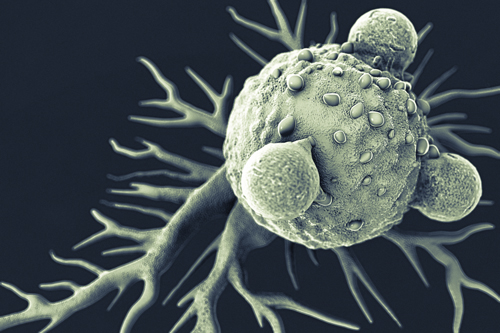CAR T: Further Questions and Ongoing Research
Scientists and clinicians alike are excited about this new therapy that may offer extended survival to certain patients who have exhausted their options for cancer treatments.
Results have been especially promising in patients with cancers such as aggressive non-Hodgkin lymphomas like diffuse large B cell lymphoma (DLBCL), transformed follicular lymphoma (TFL), primary mediastinal B-cell lymphoma (PMBCL), certain leukemias such as ALL and CLL, and multiple myelomas.
However, many questions remain, including:
- How long is CAR T-cell therapy effective? While some studies have reported extended periods of remission, patients will need to be followed long-term to answer this question.
- What is the cost of CAR T-cell therapy? Genetically engineering personalized immunotherapy is expensive and complicated. The price tag is not yet known, but some analysts suggest it will be in the hundreds of thousands of dollars. How will the healthcare system bear the burden of this cost? If “cures” are seen, will the healthcare system ethically determine to pay?
- Can CAR T-cells from donors be harvested and stored, or can a “universal” CAR-T agent be successfully developed? Researchers from the National Cancer Institute (NCI) have reported promising results from a trial using donor-derived CAR T-cells in lymphoma and leukemia.
- Can immune checkpoint inhibitors and CAR-T therapy be combined for synergistic effect and to lower doses and side effects?
Targeted Therapy: Advances Continue
While there are still questions to be answered, CAR T-cell therapy has made tremendous advancements in the last two decades.
The first clinical trial with CAR T-cells was in 1996 targeting ovarian cancer, but success was limited in early studies. However, dedicated researchers have now brought forth significant advances into personalized, targeted immunotherapies:
- Therapeutic cancer vaccines such as sipuleucel-T (Provenge) for men with metastatic prostate cancer
- Immune checkpoint inhibitors such as pembrolizumab (Keytruda) and nivolumab (Opdivo) used for non-small cell lung cancer (NSCLC), melanoma, and many other malignancies
- CAR T-cell therapy such as the investigational axicabtagene ciloleucel (KTE-C19) under studies for diffuse large b-cell lymphoma, primary mediastinal b-cell lymphoma, and transformed follicular lymphoma, among others
- Investigational T cell receptor (TCR) engineered T cells in research for solid tumors
And you can expect this list to keep growing in the near future.



